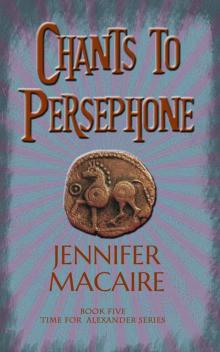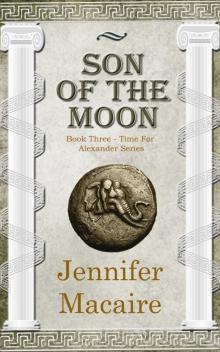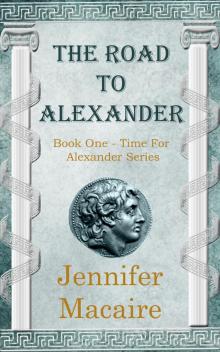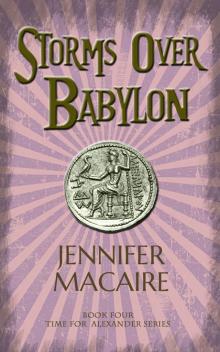- Home
- Jennifer Macaire
Son of the Moon
Son of the Moon Read online
SON OF THE
MOON
Jennifer
Macaire
Published by Accent Press Ltd 2017
Octavo House
West Bute Street
Cardiff
CF10 5LJ
www.accentpress.co.uk
Copyright © Jennifer Macaire 2017
The right of Jennifer Macaire to be identified as the author of this work has been asserted by the author in accordance with the Copyright, Designs and Patents Act 1988.
The story contained within this book is a work of fiction. Names and characters are the product of the author’s imagination and any resemblance to actual persons, living or dead, is entirely coincidental.
All rights reserved. No part of this book may be reproduced, stored in a retrieval system, or transmitted in any form or by any means, electronic, electrostatic, magnetic tape, mechanical, photocopying, recording or otherwise, without the written permission of Accent Press Ltd.
eISBN 9781682996270
In the Aegean Sea there is still a legend that a mermaid swims, forever searching for her lost lover. If she asks a fisherman where Great Alexander is, he has but one answer to give. Otherwise, in her rage and sorrow, she will call forth a storm and drown him.
Mermaid: ‘Where is Great Alexander?’
Fisherman: ‘Great Alexander lives!
And still rules!’
Chapter One
We spent the winter and spring of the lost year in the Valley of the Gods. For those who don’t believe me, I invite them to go to Nysa and see for themselves.
The army had split in two: Hephaestion and Perdiccas leading the greater half of the army and Alexander taking three fighting units – nearly twenty thousand soldiers – and his precious elephants. In December we went north, leaving the sheltered valley where we had spent the last six months. The weather was grey and chill. The grass beneath our horses’ hooves was dry and crackled; it sounded like a brush fire when the army moved.
We followed the Swat River, crossed it, then headed to the Nawar pass. On the way we stopped in a small village. We’d been invited by the chieftain and, since we wanted to find out as much as possible about our route, we stayed there for two days. The people were simple and friendly. They lined up and waved white kerchiefs at us. The army was so huge that it took ten hours just to cross the narrow bridge leading to the village, and one of the elephants stepped through the wooden boards, leaving a gaping hole. The villagers thought this wildly funny.
I heard that after we left, they renamed the village Iskandero. Iskander was what they called my husband – perhaps better known as Alexander the Great.
We were travelling lightly and wanted to go quickly. We were to meet the rest of the army at the Indus River, but first we had to go to Nysa to find the moon’s child.
The route took us through the territory of two warring tribes, the Assacenians and the Aspasians. They were already fighting against each other, and when we came into their territory, each believed that the other had enlisted us on their side. Nothing our diplomats could say could persuade them that we were simply passing through. The Assacenians attacked our column at dawn, three days after crossing the pass. They didn’t take us by surprise, they’d been harassing us for days, sending scouts, spies, and shooting arrows at us from deep thickets.
Alexander was exasperated. He’d lost three men to an ambush and he was relieved to get the fighting out in the open. First we fought the Assacenians, clearing straight through them by early afternoon. In the evening we camped uneasily at the very edge of their land, wondering if the Aspasians, seeing how we’d fought their enemies, would welcome us.
If you call a brush fire lit all around us a bright ‘hello’, I suppose you could say we were welcomed.
‘What kind of fighting is this?’ griped Alexander, buckling his leather breastplate on over his short linen tunic. He adjusted his helmet and made sure his shin guards were tightly laced. ‘They light fires and wait until we show ourselves in order to shoot arrows at us. By Hades, my lace is broken!’ He stared at a piece of leather dangling from his hand.
The smoke stung my eyes and Chiron, never very patient, started bawling. ‘I’ll get you another one.’ I started towards the wooden chest but he stopped me. ‘No, I have to go now.’ He kissed me hard and left, just another husband on his way to work in the morning.
His warhorse, Bucephalus, was ready. A groom held the reins while Alexander mounted, then handed him his shield and spear. Alexander thanked him and nudged Bucephalus with his heels. The horse needed no encouragement. His neck arched, his eyes brilliant, he cantered off.
Dawn was just breaking, but the daylight was confounded with the orange glow of the fires surrounding our encampment. The elephants, hating fire, started to bellow alarmingly. The troops lined up in even rows, the phalanx out in front, the cavalry on the flanks. The phalanx looked like a giant nightmare porcupine. It was composed of hundreds of men tightly packed together, each carrying a thirty-foot long spear. They presented a prickly, impenetrable front.
The battle that day was over by mid-morning. Alexander lost twelve men. The enemy lost half their army and sued for peace before noon.
Alexander was carried into the infirmary where I was helping Usse. His ankle had been shattered by a lance.
‘Are you all right?’ I asked, rushing to his side.
He stared at me, sweat pouring off his face, and his eyes two wells of pain.
‘Would I come here if I was all right?’ he gasped.
I sat down next to him and held his hand while Usse took off his sandal and examined the wound. When he probed, my own hand was nearly broken in Alexander’s grip, and I yelped.
‘Sorry,’ muttered the slender Egyptian doctor, dousing the ankle with hot water mixed with different herbs. He cleansed it and put a splint around it. There wasn’t much else he could do. Now we just had to pray it didn’t get infected.
We stayed for three days while we organized the peace talks with both tribes. Then Alexander decided to pull out and head straight to Nysa. An ambassador for the Assacenian king told us that the child of the moon was being worshipped in Nysa.
The child of the moon was Paul, my baby, now nearly five years old. I hadn’t seen him since he was ten days old.
Alexander left two divisions behind with his general Coenus while we took the rest of the army. We would all join up at the Indus River.
Ten days’ marching, fifty kilometres a day. The distances were absurd, but so was Alexander’s stamina. Riding Bucephalus, he drove us on. The gallant horse had already walked with his master a distance of ten thousand kilometres. I followed on my roan mare, my baby Chiron strapped to my back like an Indian papoose.
People stared, but I was used to it. They would stare no matter what I did. In a land of petite, brown-skinned, black-haired people, I was an oddity. My ancestors had been Nordic Vikings, and I had silver blonde hair and broad, high cheekbones. My eyes were blue, slanted, and chilly as an arctic glacier.
They called me the goddess Persephone, Demeter’s daughter. I was often asked to bless the fields in the winter to ensure a good harvest. Nowadays, I smiled and refused; I’d done it once. Believe me, it was enough. I couldn’t walk for a week.
They stared at Alexander too. Not that he was a tall blond. He was a medium-sized man with unruly, warm brown hair and parti-coloured eyes. His skin was fair, but he tanned easily and was now a smooth, reddish-brown all over. His hair had blond streaks from the sun. His cheeks flushed easily, he had high colouring. He was also beautifully made and perfectly balanced, a finely drawn man in the prime of his life.
Even I loved to look at him, and we’d been lovers since I’d met him, in 332 BC. It was now 326 BC, nearly
six years had passed. He still took my breath away.
He turned his head, searching for me with his uncanny eyes. He always seemed to know when I was thinking about him. His mouth quirked up at the corners, his eyebrows drew together then relaxed. He had the most expressive face of anyone I’d ever seen. He smiled and his teeth flashed whitely. He had a slight overbite; he’d sucked his thumb for years just to spite his mother, Olympias.
Now we were going to find the baby she’d kidnapped four years ago. And I hoped that one day Olympias would suffer as terribly as I had when my baby was taken from me.
* * *
Chiron squirmed on my back and started to cry. I reined in my pony and deftly swung the papoose around in front of the saddle. The little boy was hungry again. He always seemed hungry, and he was growing fast. He was two months old, a beautiful golden child with soft brown hair that curled in tiny ringlets around his ears, and slanted hazel eyes that made him look like a little elf. He had fine bones and was a deceptively delicate looking child. He looked just like his father Plexis, better known as Hephaestion, Alexander’s best friend and lover, and my lover too, obviously.
We were dirty and tired. Night was falling, and we hardly had time to set up camp. The last two days had been harrowing. Our guides had deserted us, leaving the army in a labyrinth of small valleys and twisting streams. The army, a hodgepodge amalgam of peoples and religions, reacted differently to different things.
‘It’s a question of getting to know everyone better,’ said Alexander resignedly, after watching an entire section of archers fall on their knees in front of an albino hind one of the Egyptians had shot. The archers were Greek. They thought the hind was protected by Artemis and they were waiting for her to take revenge on the ignorant fool who’d shot her deer. Revenge from goddesses usually took the form of an earthquake or a volcano – they were expecting the worst.
The worst was our guides deserted us. They’d had enough. They’d been nice local boys, two brothers, willing to lead us to Nysa, ‘a three-day march’ they told us. However, they made the mistake of jumping over a large brook without first kneeling and asking permission from the water nymph, and five religious-minded Macedonians gave them a thrashing they wouldn’t forget. Or forgive, apparently. We were lost.
We sent a group of men to fetch firewood, after making sure they all realized that they had to ask permission from the tree they were to cut.
‘Excuse me, Desdoinia.’ It was another Egyptian, speaking to the soldier in charge of firewood. ‘Excuse me, I say. But how do you ask a tree anything? Where are its ears, pray tell? And how do I know if its answer is affirmative?’
I thought these were good questions and leaned over to hear the answer.
Desdoinia, a haughty-looking Persian, answered shortly. ‘A tree has no ears, but the nymph living inside it does. You address the tree. She will hear you. And you speak loudly. You’ll know if she’s given you permission when you start cutting. If the axe slips and cuts off your leg, it means “no”.’
The Egyptian looked doubtful. ‘I’d rather know beforehand if she said “yes” or “no”. Is there no other way to make sure? Besides,’ he dug his toe in the soft ground and looked askance at Desdoinia. ‘I thought green wood burned badly.’
The woodcutters left, still arguing theology, and I went to the stream to fetch some water to bathe Chiron and myself. The night was cool and would get colder. I picked up dry sticks on my way to the stream. A fire would be nice.
We camped near the stream that night after asking permission of the river god. The tent was set up when I got back. Brazza was rocking Chiron in his hammock, Axiom was busy getting dinner, and Alexander was sitting on the bed discussing with his generals which route to take. His ankle hadn’t gotten infected and seemed to be healing well, but it was still in a splint, and it still pained him at night.
He leaned back on his elbows as I came in, and he smiled. The light from the blue glass lantern made his skin as pale as milk and shadowed his eyes. Craterus and Ptolemy Lagos rose when I entered. Both men were tall and gaunt, but they were as dissimilar as could be. Craterus was a pale-skinned, mournful-faced man. He had neatly trimmed dark hair. His eyes were the soft grey of a wintery sky. Ptolemy Lagos shaved his head, which was why we called him ‘Baldy’. His skin was the colour of old ivory, and in the summertime he turned nearly brown. His eyes were deep and piercing, his mouth large, sensual, and curved in a smile. He was always exquisitely polite.
I was wary of polite people. Ptolemy had the same flat stare as a shark. The smile didn’t fool me.
I dumped my load of firewood in the corner of the tent, put the bucket of water down, and washed my hands and face. Then I poured the water into the cauldron and started heating it for the bath. Axiom had nearly finished grilling the steaks and the smell of meat made my mouth water. Fatigue made my muscles ache. I longed to sit in a hot tub and soak, with a radio playing soft music, electric lights, and a good book in my lap. Well, in three thousand years that would be possible. Right now I’d have to settle for a quick wash in a small tub. Someone would play the lute, and I could curl up afterwards on my bed with a copy of the Iliad, the only story we had with us.
First I washed Chiron. He loved his bath and kicked and squealed, his legs moving in unison like an excited frog. Kick, kick, kick! When I lifted him out of the bath he yelled loudly, wailing while I dried him off in front of the fire and dressed him. He squalled until his mouth found my nipple, then he nursed greedily until he dropped off to sleep, as suddenly as only a tiny baby can.
Chiron slept, woke, and cried. He nursed again and dropped off to sleep. He had no schedule to speak of. He was a cranky, cantankerous little soul who wanted desperately to stay awake but couldn’t manage to keep his eyes open after eating. I had finally figured him out. He cried easily and was prone to excess emotion. When he was still, he was very, very still; uncanny for a little fellow his age. His eyes would search and search for things to study. He got bored easily. He loved new faces. He adored pulling hair, and he sucked his fists, not his fingers. When he slept, he was the most beautiful baby in the world, pure of face and peaceful. Awake, his expressions could range from gargoyle to cherub, and everything in between. He looked like Plexis, but he had Alexander’s character traits. Sometimes I wondered whose child he was. I stroked Chiron’s downy head, so fragile and fine. I glanced at Alexander and our eyes met. A smile moved across his face, as shy as a shadow, but his eyes were serious and deeply tender.
When Craterus and Ptolemy finished their report, we sat on the rug and ate. They told us some stories they’d heard from their soldiers. The stories were mostly about the new animals and trees they’d seen. One man swore he’d seen a red bush walking. Another man was sure he’d seen a river god who had forbidden Alexander to cross the Indus. This story took up most of the conversation, because the man in question was a priest, and we’d already had our share of trouble with a priest.
Alexander sighed and scratched his head. ‘What does he want me to do?’
‘Turn around and go home,’ said Ptolemy, shrugging. He took a large bite of meat and mumbled, ‘Ishnothingsherous.’
‘What?’
Ptolemy swallowed and frowned. ‘It’s nothing serious. I’m so hungry I could eat an elephant.’
Alexander brightened. Elephants were his favourite subjects, after himself. ‘How are they doing? Is the female any better?’ Her ear had gotten infected after the last battle. An arrow had struck the mighty beast and cut her badly.
‘She’s fine.’ Ptolemy was in charge of the elephants and the infantry around them. Craterus led the phalanx, and Alexander was head of the cavalry. We were travelling lightly; only twenty thousand of us, including slaves, priests, cooks, soldiers, scientists, doctors, grooms, scribes, pages, historians, and Chiron and me.
Forty thousand men led by Plexis and Perdiccas made up the other half of the army. Our scouts told us they had started a siege at a place called Charsadda. Apparently, the kin
g on the far side of the Indus barred the passage to Alexander. Of the two kings in that area only Taxiles, king of Taxila, had sent diplomats and elephants to Alexander. He’d also pledged his support and gave him free passage through his lands.
The other guy hadn’t been so smart. After forty days the city would surrender, be sacked, and the king killed. Plexis and Perdiccas sent news regularly, which was how we knew what was happening. Alexander loved getting mail.
After dinner, the men played chess or draughts while Alexander played the lute. He’d been well educated, and besides playing the lute he played the ceremonial oboe, the flute, and drums. He could recite Homer, Plato, and Euripides, and he knew all the constellations and stars in the sky. He could speak five languages fluently and three others well enough to make himself understood. He had studied all the ancient philosophies and the latest ones as well. Science, mathematics, history, and politics had been included in his lessons. Aristotle had been his teacher for ten years, and Alexander was still thirsty for knowledge.
I never met anyone with such a curious mind. Everything interested him. He asked questions of everyone, be they shepherd or prince, and he paid attention to their answers. I listened to him plucking the chords of the lute, his face a study in concentration. He was trying to remember a song I’d taught him. The song came from a few thousand years in the future. Normally it was played on an electric guitar, but the lute wasn’t bad.
Brazza poured hot water into my tub and I sighed with pleasure as I sank into the scented water. The Persians made hundreds of different perfumes, and I had quite a few with me. Tonight I chose yellow musk-rose; the scent was divine. I put a curtain up in the corner, and my bath was behind it. It was rather a vain gesture. Everyone went around practically naked; the men marched, fought, and worked with just a short wool or linen, wrap-around skirt.
A ceremonial toga, a linen tunic to go under his armour, a pleated skirt, and a woollen cape were all the clothes Alexander possessed. I had a silk robe, a cotton shift, a linen tunic, a long linen robe, some makeshift drawstring underwear, two pairs of wool pants, a woollen jacket, and a cape.

 The Eternal Banquet
The Eternal Banquet Chants to Persephone: The Future of the World Hangs on a Knife's Edge - and Only a Human Sacrifice Can Save It
Chants to Persephone: The Future of the World Hangs on a Knife's Edge - and Only a Human Sacrifice Can Save It The Soul of Time
The Soul of Time Son of the Moon
Son of the Moon A Charm for a Unicorn
A Charm for a Unicorn The Road to Alexander
The Road to Alexander Jack the Stripper
Jack the Stripper Storms over Babylon
Storms over Babylon Virtual Murder
Virtual Murder